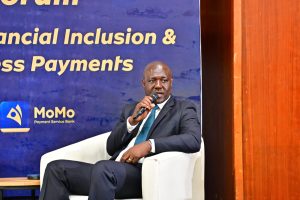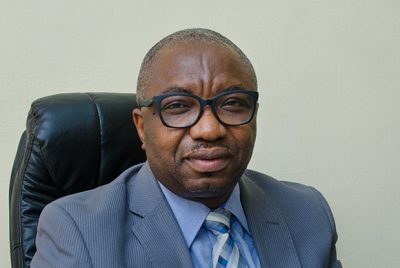
By Rukayat Moisemhe
MoMo Payment Service Bank (PSB), an electronic service provider and financial technology stakeholders have called for collaboration within the industry to drive financial inclusion and improve quality of lives of Nigerians.
They spoke at the Momo first anniversary and stakeholders forum with theme; “Driving Financial Inclusion and Cashless Payments”, on Wednesday in Lagos.
Chief Executive Officer (CEO), MoMo PSB, Mr Eli Hini, said industry collaboration would extend financial services to all Nigerians.
He said that the electronic payment volume which jumped by 298 per cent in the first quarter of 2023 due to the cash crunch, reinforced the need for better infrastructure to accommodate the transaction volumes.
Hini emphasised the need to include more women in the financial system space, particularly those in the retail value chain to experience financial solutions.
“Imagine what it would be like if every adult in Nigeria could access formal financial services, keep, send, receive, spend or invest money through a trusted financial service provider.
“Many people because of exclusion have had challenges meeting with basic needs, therefore, impacting the quality of life.
“Businesses need to go above personal interest and address challenges hindering financial inclusion in Nigeria and must take advantage of government policies already put in place to address these.
“We understand that there are cultural barriers which require constant sensitisation, but we must work to improve access to financial inclusion to rural economy and must continue to build their trust in our service,” he said.
Mr Michael Ajukwu, Chairman, MoMo PSB Board, announced the commitment of the company in bringing the unbanked into the formal system.
Ajukwu expressed gratitude over the extent of internet penetration which he said led to a more fulfilling life.
Also, co-founder, PiggyVest, Ms Odunayo Eweniyi, said that achieving the set target of 95 per cent financial inclusion rate in the country meant deeply understanding the needs of the un-banked and building services that accommodated and addressed those needs.
Eweniyi also emphasised the need to address infrastructural deficiencies in rural areas and employ measures to manage the gender divide between women and men for financial inclusion.
“Women spend more in actual development than men will, and if more women are included; there will be actual significant measurable progress into the space.
“We must begin to provide social interventions and affordable services for those we are targeting as much as we are also looking to make money,” she said.
Unified Payments CEO, Mr Agada Apochi, said there was need for Nigerians to start to pursue digital financial inclusion against just financial inclusion to bridge the financial technology divide.
“The system we need is one where the artisan you are going to meet or the core retail sales person that sells popcorn, or finger foods at the roadside can use his telephone and number as a money device against carrying cash or a Point of Sale machine.
“This drives the need to build a bigger ecosystem and we must adopt collaboration and cross system alliance to pull in bigger numbers to truly drive the inclusion we need as a country,” he said.
Mr Iyinoluwa Aboyeji, Co-founder, Andela, stated the need to move from financial inclusion to a multidimensional type of inclusion of economic, social and global inclusions.
According to him, payment services players must do what is necessary to put monies in people’s pockets and take account of the human capital and empower them as agents to enable them serve the community in real tangible ways.
“The most important thing for a nation that is productive is to move on from financial to global inclusion and we need to optimise the entire nation for that to move everybody from income level zero to income level plus one,” he said.
Managing Director, Fairmoney, Mr Henry Obiekia, said players and regulators within the sector must begin to address barriers to financial literacy.
According to him, stakeholders must begin to spend time trying to educate people on why financial inclusion is important and create products that suit the consumer and improve their standards of living.
“The real life test in February and March due to the cash crunch reenforced the need to further execute cashless policies, however, there was failure due to the infrastructural deficiencies encountered.
“A lot of people do not understand financial technology and how it can make their lives better.
“This means we need to be ready for the financial inclusion and cashless payment that we crave and bear in mind that the mindset for urban areas has to be different from that of rural areas,” he said.
Commissioner of Science and Technology, Lagos, HoHakeem Fahm, reiterated the state government’s commitment to continually provide the enabling environment necessary to foster the growth of businesses within the state.
Fahm revealed that the state had already deployed over 3000 kilometres of fibre across the state to improve technological access in public institutions, market places and businesses.
“In Lagos, we have adopted a multimodal transportation system and make use of the Cowry Card, which is a payment system.
“The same can be extended to the regular commercial buses and this provides a huge market for the private sector to drive the kind of inclusion we are looking at.
“However, continued efforts are required to address infrastructure, cyber security and consumer trust to engender a sustainable and inclusive financial ecosystem in Nigeria,” he said.(NAN)



